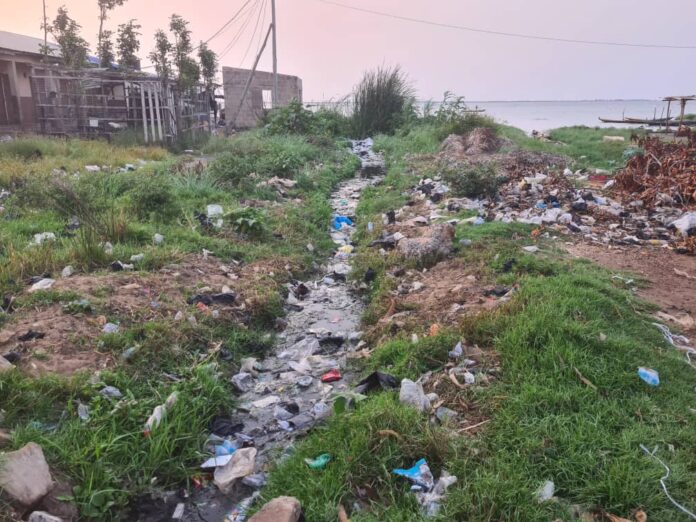Members of the Volta branch of the Media Coalition Against Open Defecation have embarked on an ambitious mission across the Volta Region, bringing hope and practical solutions to communities grappling with decades-old sanitation challenges as part of the 2025 Ghana Water, Sanitation, and Hygiene (WASH) Week celebrations.
The Ghana Coalition of NGOs in Water and Sanitation (CONIWAS), in partnership with the Media Coalition Against Open Defecation (M-CODE), launched a comprehensive awareness campaign under the national theme “WASH for a Healthy Ghana, Everyone, Everywhere,” with activities spanning multiple districts from North Tongu to Keta.
Dignity for All, Toilets for All
M-CODE’s complementary theme, “Dignity for All, Toilets for All: End Open Defecation Now,” has resonated strongly with community leaders and residents as the coalition travels from village to village and market to market, spreading awareness about the urgent need for improved sanitation infrastructure.
In Anlo Afiadenyigba, Gabriel Kwabla Kwatsikor, Assembly Member for Dziehe-Ablame Electoral Area, highlighted the challenges facing his six-community constituency. “For decades, our sanitation issues have persisted, but we are grateful that the government has instituted the first Saturday of every month as National Sanitation Day,” Kwatsikor said. His community has embraced the initiative, implementing local bylaws that mandate participation in weekly cleanup exercises.
Community-Led Solutions
The Afiadenyigba community leverages grassroots enforcement. Local chiefs and elders established a system where non-participation in Sunday cleanup exercises results in sanctions, with persistent offenders facing court action and penalties.
“We now have a bylaw which guarantees that every Sunday, community members participate in cleanup exercises. Anyone who doesn’t participate will be charged and sanctioned by the chiefs and elders,” Kwatsikor explained. He added, however, that resource constraints remain a challenge: “We lack the basic tools to create the finest and cleanest environment in Ghana. We are calling on individuals and organizations to provide the necessary equipment and support.”
The Health Crisis Hidden in Plain Sight
Kwatsikor described open defecation as the most pressing public health challenge facing rural communities. “Open defecation is causing a whole lot of problems, especially health issues,” he said, appealing for support to construct household toilets. “Even 50 percent assistance would significantly help community members have individual household toilets.”
He also highlighted environmental concerns, noting how plastic pollution contaminates local water sources. “When plastic materials enter our rivers, they don’t decompose. Fish feed on them and become contaminated, affecting the entire food chain,” he explained.
Market Traders Join the Movement
The coalition’s strategy includes targeted market sensitization activities, recognizing that commercial centers serve as community hubs. Members have conducted cleanup exercises in markets while educating traders and customers about proper sanitation practices and the importance of clean toilet facilities.
A Regional Transformation
The WASH Week campaign covers communities including Mepe in North Tongu, Anloga, Ho, and Keta, each presenting unique sanitation challenges requiring tailored solutions. Coalition members actively engage with residents, traditional authorities, and local government officials to develop sustainable solutions that combine modern sanitation infrastructure with traditional governance systems.
Looking Forward
The coalition’s work in the Volta Region demonstrates that ending open defecation requires more than infrastructure—it demands community ownership, traditional authority support, adequate resources, and sustained awareness campaigns treating sanitation as a fundamental human dignity issue.
With leaders like Kwatsikor and organizations like CONIWAS and M-CODE providing technical support and advocacy, the vision of “WASH for a Healthy Ghana, Everyone, Everywhere” is gradually becoming a reality across the Volta Region. The success of these efforts may determine whether Ghana achieves its sanitation goals, providing dignity and health security for all citizens.
Source: Odehyeba Owusu Job
ALSO READ:


